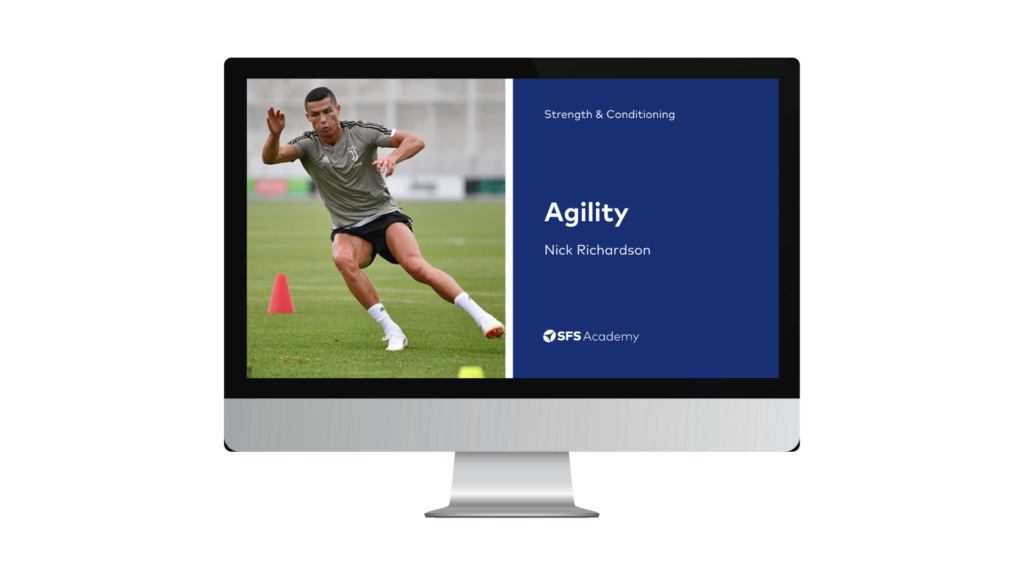This week in the world of sports science, here’s what happened…
- Is calorie counting a waste of time?
- Benefits of resistance training for youth golfers
- Coaches still not comfortable with the menstrual cycle
Is calorie counting a waste of time?

In a recent article published by the Telegraph, British epidemiologist and medical doctor Tim Spector delves into the pitfalls associated with calorie counting. The practice of calorie counting has gained significant traction in both the general public, aiming to manage obesity, and the athletic community, striving to achieve either weight loss or muscle gain for optimal performance.
Spector begins by addressing the mounting concern over obesity levels, particularly in the U.K., and illustrates how calorie-counting diets tend to yield short-term weight loss but often fail to produce long-term success. He proceeds to outline his perspective on why calorie counting proves ineffective.
Principally, Spector argues that counting calories leads individuals to obsess over food label details. However, he asserts that food labels are highly unreliable, frequently providing inaccurate information, leading to underestimations of calorie intake. Notably, Spector points out that the most accurate food labels tend to appear on heavily processed artificial foods, consumption of which he advocates limiting.
Even when food intake is meticulously tracked, the body’s absorption of calories varies from the quantity consumed. Spector illustrates this point by providing an example of two individuals consuming an equal amount of calories from nuts and beans, yet experiencing different rates of calorie absorption.
Spector further argues that calorie counting may cause people to choose nutritionally deficient “junk” foods instead of equally calorie-rich but nutrient-rich alternatives. To back up this point, he mentions a study that compared the effects of an ultra-processed diet and a whole-food-based diet, both containing the same number of calories. The study showed a significant difference in weight outcomes between the two groups after two weeks.
Finally, Spector explores the hormonal response to ultra-processed foods and the metabolic changes resulting from a sustained calorie deficit. This article provides persuasive arguments that question the effectiveness of calorie counting.
If you are a qualified nutritionist or dietitian, we recommend you check out this piece! We would love to hear your thoughts on whether you believe weight loss is all about being in a calorie deficit, or if you agree with Spector and think that calorie counting is a “waste of time.”
Benefits of resistance training for youth golfers

A recent notable study has emphasised the significance of youth resistance training. The study delved into the effects of a 12-week progressive resistance training program on talented junior golfers.
Eighteen young golfers were divided into a control group and an experimental group. While both groups maintained their regular golfing activities, the experimental group participated in two resistance training sessions per week for 12 weeks.
Unsurprisingly, the resistance training group exhibited significant improvements in the isometric mid-thigh pull test, the countermovement jump test, and the standing long jump test. Additionally, they displayed a noteworthy enhancement in the overall score of a golf movement screen test. Interestingly, they also demonstrated superior progress in specific golfing skills, particularly in club head speed and carry distance for a 6-iron and driver.
This study effectively showcased how youth resistance training not only enhances athletic abilities but also improves sport-specific capabilities. Furthermore, the study accounted for maturity offset, adding further credibility to its conclusions. If you are involved in training or working with young golfers, this study is essential reading for you.
Coaches still not comfortable with the menstrual cycle

A recent study published in the International Journal of Sports Science and Coaching explored the role of coaches in supporting female football players through their menstrual cycle. The study highlighted the impact of the menstrual cycle on female athletes’ performance and revealed a perceived lack of support for them during this time, often resulting in their disengagement from sports.
The research involved interviews with 13 coaches from elite adult and youth football clubs in Scotland. Findings indicated that coaches generally felt uncomfortable discussing the menstrual cycle with their athletes, assuming that such conversations would embarrass the players. Interestingly, the study revealed that establishing trust and familiarity in the coach-athlete relationship facilitated more open communication about the menstrual cycle.
This study underscores the need for enhanced education and practical guidance for coaches to better support female athletes during their menstrual cycle. Normalising discussions about the menstrual cycle between coaches and female athletes is crucial for creating an environment where female athletes feel supported, ultimately enabling them to excel in their sport.
If you are interested in this topic, check out our blog Understanding and approaching the entire menstrual cycle: A guide for coaches
From us this week:
>> New course: GPS Devices
>> New podcast: Rocket Your Career With The Perfect Placement
>> New infographic: Total Energy Expenditure of Elite Tennis Players
>> New article: Stop Looking! These Are The Best Infrared Saunas (2024)
Access to a growing library of sports science courses
SFS Academy is an all-access membership to premium sports science education.
With SFS Academy, you’ll learn from some of the best coaches around the world as they teach you how to apply the latest research and practice with your athletes.



